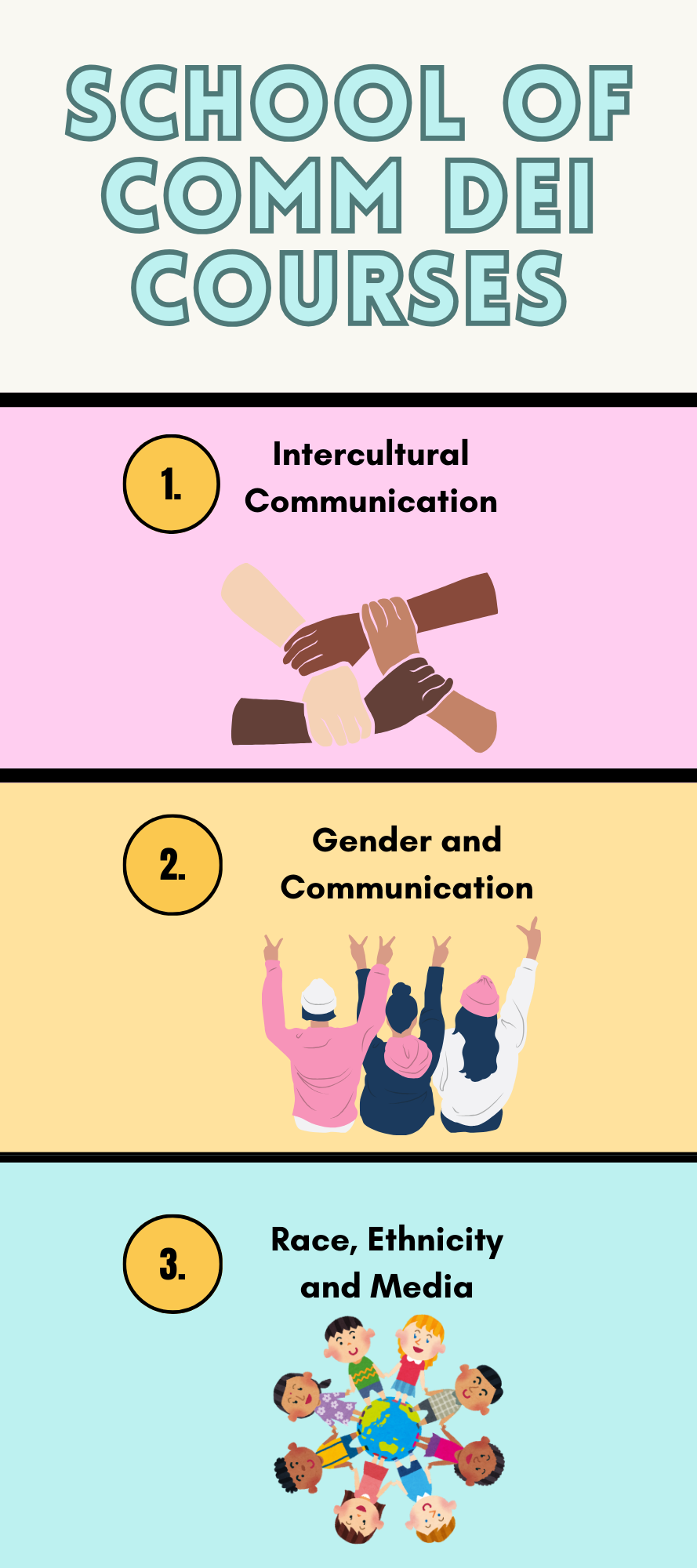Many East Carolina University students are upset that DEI courses, or Diversity, Equity, and Inclusion courses, are no longer a graduation requirement.
According to the ECU course catalog, 374 courses offered in the Fall 2025 term fall under this category. The Office of the Chancellor announced that the UNC System suspended all general education and major requirements for classes that are believed to meet DEI standards. The announcement came after the Trump administration threatened to revoke the federal funding of universities that did not comply. As a result, ECU determined that these courses would no longer be required for graduation. The new guidelines have had an effect on many academic programs, including the School of Communication.
School of Communication Director Dr. Laura Prividera said that lifting the requirement of DEI courses impacted a “diversity pod” of required courses in the Interpersonal and Organizational Communication concentration, as well as the Public Relations and Media Studies concentrations. “Those courses are still available, but students can choose from a variety of electives,” Prividera explained.
Previously, School of Communication majors were required to take at least one course that fell into the DEI category. These courses included Gender and Communication, Intercultural Communication; and Race, Ethnicity, and Media.
The purpose of DEI courses is to teach students about issues surrounding discrimination and bias, as well as help them gain a better understanding of different cultures, races and ethnicities, as well as gender. The courses expand on inequalities of various minority groups as well as teach students how to effectively communicate with these groups. One goal of the courses is to teach students to become more inclusive in their professional and personal lives.
Although classes that fall under the “DEI” category are no longer required for graduation, some still see the classes as beneficial and do not agree with the UNC System suspension.
Grace Cedeno, a 2024 ECU graduate who studied communication and sociology said she took a number of DEI classes and gained a lot from taking them. “I think it’s a shame students are no longer required to take these courses,” Cedeno said. “I myself benefited by them and felt that they strengthened both my curriculum and post-graduation experience.”
Aside from taking Gender and Communication, a course that was previously part of the required diversity pod for communication majors, Cedeno also took Race, Gender, and Class for her sociology major, another class that falls under the DEI rules. “Through these classes I gained a deeper understanding of the world and people around me,” Cedeno said. “[They] allowed my eyes to open to the experiences of people who might come from different backgrounds than I do.”
Brynn Knight, a senior communication major concentrating in Interpersonal and Organizational Communication, also took Gender and Communication last fall. “I needed another credit and thought it would be interesting and different from other courses I had taken,” Knight said.
Knight said despite the university’s decision to no longer require these courses, students should take them. “I think it’s beneficial for these courses to be required,” Knight said. “I also think in life you are going to have to be aware of topics presented in DEI classes, so I do not understand not wanting to take them.”
These courses are not only important to students, but instructors and professors also find the courses valuable. Dr. Adrienne Muldrow, a communication professor at ECU, teaches Race, Ethnicity, and Media. “I love these courses because they allow students to grow,” Muldrow said. “They can bring their own cultural heritage because we all have culture.”
Muldrow not only enjoys teaching the course, but also hopes that students walk out with knowledge about different cultures to help them in the future. “Eventually, you will probably hit somebody’s culture in a workplace and then not know how to manage that or talk to them,” Muldrow said. “It alleviates the making of mistakes that belittle people, even though you didn’t mean to.”
As of Feb. 6, students who were enrolled in a class that fell under the prior diversity requirement were given the option to drop the class, as it was no longer a graduation requirement. Students who had yet to take a DEI class are no longer required to take a course that falls into this category. “If a student was missing that class, now they do not have to worry about it as long as they have their credits,” Prividera said.
Dr. Eric Shouse, the Faculty Senate representative for the School of Communication, said that though these courses are no longer required, only 21 students across the university dropped what was considered a DEI course following the Feb 6 announcement. “I think the majority of people are happy to take [the classes],” Shouse said.
Though these classes are no longer required for students, they will still be available for students to take. “Overall, those courses are available to communication students–majors and minors. It’s just up to them which of those courses they may choose to take for their profession and career development,” Prividera said.
While the targeted classes were previously a part of a School of Communication diversity pod, they are now a part of a general elective pod. However, if a class doesn’t attract enough students in the absence of the requirement, it is generally not offered.
